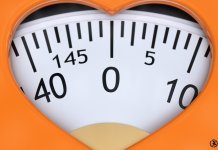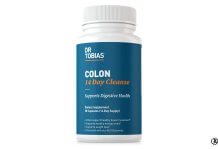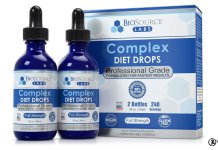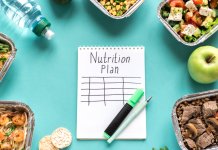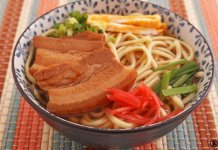I get commissions for purchases made through links on the site. As an Amazon and Clickbank Associate I earn from qualifying purchases. Learn more.
Hey, quick question! Do you know one thing that is common among all dieters? Something other than dieting! Can’t ring a bell? Okay, I’ll tell you – they all crave cheat days!
Whether a person is dieting to lose weight, gain muscles or keep their bodies in top physical conditions to excel in some sports, they all share cheat days in their diets.
What’s that? You haven’t heard of cheat days before? It’s okay; we still consider you human. While the concept of cheat days has been around pretty much since the concept of clean eating was proposed by fitness enthusiasts, they were considered no less than a sin. But thanks to social media, cheat days are making their way into the conventional diet culture – nowadays, it is common to have a cheat day once a week!
But are cheat days really a good idea for dieters? Stay tuned to this guide to cheat days to find out!
Estimated reading time: 13 minutes
Table of contents
- NutriLean – This supplement helps in rectifying hormonal function by producing nitric oxide levels in our bodies. This natural supplement helps an individual lose weight naturally and quickly.
What Are Cheat Days?
As the name suggests, a cheat day is a day dieters set aside to indulge in something they normally wouldn’t eat. So, whether a person is following a diet plan to lose weight or gain muscles, or for any other reasons, they give themselves a break one day a week while following a strict diet the remaining days.
Now, the cheat diet strategies vary significantly. Depending on an individual’s eating choices and goals, cheat day strategies vary from person to person. Some people treat cheat days as an all-you-can-eat day. They allow themselves everything and anything that their diet doesn’t allow them, including high-calorie foods like burgers and pizzas. However, other people give themselves calculated permissions to break their strict diet rules. So, they allot an upper cap for themselves, which is more than their usual, and monitor their calorie intake for the cheat day.
Technically, both these methods are correct, considering that there are no hard and fast rules for what a person can eat during a cheat day.
The Theory behind Cheat Days
Now, you must be wondering why people have cheat days when they are on a diet. Think of it this way: when you are sick, and the doctor prohibits you from eating something, say ice cream, you crave for it more, right? And you might even sneak a scoop into your room, too, right? The same is the case with cheat days on a diet!
According to a dieter’s point of view, there are three main motivations behind cheat days. Firstly, it is believed that cheat days increase dieters’ metabolisms. It is true that when you restrict your calorie intake, your body will ultimately adapt and reset your metabolism to accommodate your new lower intake. However, the argument is that cheat days will reduce or prevent this by boosting your metabolism, resulting in more calorie burning.
The second theory is a bit technical. Cheat days are argued to keep dieters’ leptin levels up. Leptin is a hormone that has a major influence on suppressing feelings of hunger. When you diet, your leptin levels fall, giving you a tough time resisting your favorite foods. So, by allowing yourself a cheat day to keep your leptin levels up, you can do a better job at dieting the rest of the week rather than giving in to pizzas and milkshakes on your heart’s (or leptin’s) desire.
The last reason is nothing technical; it is associated with human psychology. Dieters consider cheat days on a diet as a reward-based diet strategy. They say that you’ll be more likely to stick to your suggested diet if you give yourself short intervals of indulgence now and again.
Should You Cheat On Your Diet?
Do these theories behind cheat days sound convincing? Yes, they do! Are they actually factual? Let’s see!
Firstly, we will discuss the theory that cheat days help maintain the level of leptin circulation in the body. This is a fact that when leptin levels are low, the body believes it has no body fat. This results in strong, uncontrollable hunger and food intake, also called cheat meals. Cheat meals can result in rebound weight gain, so it is better to intentionally and consciously take a day off from strict diet plans.
Next, the theory of cheat days as a reward-based system does sound pretty convincing. However, it may be ineffective for people who have a tough time regulating their emotions while eating. They might develop sentiments of guilt and remorse, which will weaken their case. A study suggests that people who related chocolate cake with celebration did a better job at losing weight than those who associated it with emotions of guilt.
So, what about the theory of metabolism? In the opinion of dietitian Fiona Hunter, “there is no rigorous scientific study to support this”.
What Do the Professionals Have to Say?
The professionals are always conflicting about whether people should have cheat days on a diet or not. For example, personal trainer Scott Laidler abolishes the idea of having cheat days. He says that ‘When looked at from a physiological standpoint, the concept that one needs a cheat day is flawed. Large meals should not be planned for someone adopting a meal plan or getting into shape for the first time.’ However, the entire dieters’ community agreed with him when he added, ‘Nevertheless, it can’t be denied that cheat days are something to look forward to.’
Contradicting with the first half of Laidler’s statement, a study published in the International Journal of Obesity in 2017 indicated that dieters who took a two-week break from their low-calorie eating plan lost more weight than those who maintained their strict diet constantly.
Furthermore, the concept of cheat days has also been supported by the findings of Australian researchers. They discovered that dieters who took a cheat day from their planned diets lost approximately 50 percent more weight, as well as 50 percent more body fat, than dieters who followed the prescribed diet consistently. Even though both groups gained a few pounds back after six months, the cheat day dieters weighed approximately 18 pounds less than those who did not engage in a few cheat meals.
- Exipure – Exipure is an all-natural supplement aimed at helping users to burn excess belly fat in a natural, safe manner. The supplement targets the root cause of the accumulation of belly fat using powerful natural ingredients.
Navigating Post-Cheat Day Effects
Navigating the effects that follow a cheat day is essential to maintaining a healthy and positive relationship with food and your overall diet. Here’s a guide on how to navigate post-cheat day effects and get back on track:
1. Hydration Is Key:
After a cheat day, focus on rehydrating your body. Drink plenty of water throughout the day to help flush out excess sodium and reduce bloating.
2. Choose Nutrient-Dense Foods:
Opt for nutrient-rich meals that include lean proteins, vegetables, and whole grains. These foods provide essential vitamins, minerals, and fiber that support digestion and energy levels.
3. Don’t Skip Meals:
Avoid the temptation to skip meals the day after a cheat day. Instead, stick to regular eating patterns to stabilize blood sugar levels and avoid overcompensating with excessive restrictions.
4. Prioritize Physical Activity:
Engage in light to moderate physical activity, such as walking or yoga, to help stimulate digestion and promote a sense of well-being. Avoid intense workouts, as your body might need time to recover.
5. Embrace Mindful Eating:
Practice mindful eating techniques to reconnect with your body’s hunger and fullness cues. Listen to your body and eat until you’re satisfied, focusing on enjoying the flavors and textures of your meals.
6. Opt for Fresh Produce:
Incorporate fresh fruits and vegetables into your meals to boost fiber intake and support digestion. Foods like leafy greens, cucumbers, and berries can help reduce bloating.
7. Manage Portion Sizes:
Be mindful of portion sizes as you resume regular eating habits. Avoid the temptation to compensate for the cheat day by drastically reducing portions, as this can lead to a cycle of restriction and overindulgence.
8. Avoid Guilt and Judgment:
It’s important to avoid feelings of guilt or self-judgment after a cheat day. Remember that occasional indulgences are a natural part of a balanced lifestyle. Focus on progress rather than perfection.
9. Set Realistic Goals:
Set realistic goals for your post-cheat day meals and snacks. Aim for balanced and nourishing options that help you regain a sense of control over your eating habits.
10. Plan for Balanced Meals:
Plan your meals ahead to include a variety of nutrient-dense foods. Incorporate lean proteins, whole grains, healthy fats, and colorful vegetables to restore nutritional balance.
11. Be Patient:
Your body might need time to readjust after a cheat day. Be patient with yourself and trust that returning to your regular eating habits will help you feel better over time.
Remember that one cheat day won’t significantly impact your long-term progress. It’s the overall consistency of your habits that matters. By approaching post-cheat day effects with a balanced and mindful mindset, you can quickly get back on track and continue on your journey toward your health and fitness goals.
Our Tips to Leading the Healthiest Cheat Days
Up till now, all the evidence and statements that we have discussed point towards cheat days being a good idea for dieters. So, now, if you are going to cheat, why not do it the right way? Here are some of our top tips for leading the healthiest and happiest cheat day you have had in a while!
1- Plan What to Cheat On Your Diet With
When it comes to cheat meals, having a plan is helpful. Make a schedule for when and what you’ll eat. The vast majority of specialists feel that one shift at the end of every week is adequate. So, you should try to cheat on the weekends, or if there is some special occasion by the corner, you can wait for that.
Similarly, you should be careful about what you want to cheat on your diet with. As registered dietitian Amy Shapiro says, ‘choose your poison. If you’re going out, choose your splurge carefully.’
2- Do a Little Banking
By “banking” the majority of your daily calories, especially those from carbs and fats, you can reduce the negative effect of a cheat meal on the day of your feast. There are a handful of excellent approaches to accomplish this. You can either skip a meal after a heavy one or increase the duration between each meal.
3- Work Out Before You Feast
Unless you want that cheesy pizza making an appearance on your body, you should head to the gym before heading out to the restaurant for a takeaway. Working out before having cheat meals is a great way to minimize the after-effects of the fat gains from those tempting meals.
4- Don’t Get Carried Away
We, dieters, know how easy it is to be distracted by the temptations on the menus. So exercise mental control over yourself before ordering from a restaurant. A great tip to not get carried away by the multiple food options available on the list is by mentally limiting the options to what you love and crave. Also, never, I repeat – never choose a restaurant with a buffet on your cheat day; it is a trick!
5- Try to Cheat at Home
If possible, try to eat at home rather than at restaurants on your cheat day. According to studies, persons who eat while watching television eat 10% more in a single sitting than they would otherwise. Not only that but “distracted eaters” consume up to 25% more total calories during the day. So, how to save yourself from the situation? Don’t get distracted! Order food at home to avoid getting distracted by the cake you saw the persons on your neighboring table ordering.
6- Savor Each Bite
Eat each cheat meal like it’s the last. You have been working hard for this treat the whole week, so you deserve to enjoy every bite of it! Also, if you eat at a slower pace, you will realize when you get full, preventing you from overeating. So, it’s a win-win.
7- Limit Your Cheat Day To A ‘Day.’
The most important thing to remember while indulging in your favorite meals on your cheat day is to limit the indulging to a single day only! The brain does an amazing job at tricking your mind into thinking that you have ruined your diet on your cheat day, so it wouldn’t matter if you continued it for a week. But it does matter! Whenever your brain plays these mind tricks on you, remember these wise words by Dr. Shapiro: ‘Everyone deserves a cheat day, but no one deserves a cheat week – not even on their birthdays!’
Personal Experiences and Success Stories
Certainly! Personal experiences and success stories can provide inspiration and relatability for your readers. Here are a couple of fictional success stories related to managing cheat days and achieving balance in a healthy lifestyle:
Success Story 1: Emily’s Balanced Approach to Cheat Days
Emily, a working professional and fitness enthusiast, used to view cheat days as an opportunity to indulge without restraint. However, she realized that this approach left her feeling guilty and derailed her progress. Determined to find a healthier balance, Emily decided to adopt a more mindful approach to cheat days.
Instead of going all out on a single day, Emily began incorporating small indulgences throughout the week. She allowed herself to enjoy her favorite treats in moderation, focusing on savoring the flavors and practicing mindful eating. This shift in mindset helped Emily overcome feelings of guilt and allowed her to enjoy her favorite foods without overindulging.
Over time, Emily noticed that her cravings for unhealthy foods decreased, and she felt more in control of her choices. Her energy levels remained consistent, and she found that she could easily get back on track after a treat without feeling like she had “fallen off the wagon.” Emily’s success story highlights how adopting a balanced approach to cheat days can lead to improved mental and physical well-being.
Success Story 2: Mark’s Journey to Mindful Eating
Mark, a fitness enthusiast and busy parent, used to dread cheat days due to the guilt and overeating that often followed. He realized that his negative relationship with food was impacting his overall enjoyment of his fitness journey. Determined to change, Mark decided to prioritize mindful eating and self-compassion.
Mark began by listening to his body’s hunger cues and choosing treats that truly brought him joy. He focused on fully experiencing the taste and texture of each bite, savoring the moment rather than rushing through meals. This shift in approach allowed him to enjoy his favorite foods without the usual bingeing.
As a result, Mark’s outlook on cheat days transformed. He no longer viewed them as opportunities to overindulge, but as moments to appreciate and savor special treats. With a more balanced mindset, Mark found that he was able to maintain his progress and still enjoy occasional indulgences guilt-free. Mark’s journey demonstrates the power of mindful eating and its positive impact on both physical and mental well-being.
These fictional success stories provide examples of individuals who have navigated the challenges of cheat days and found balance in their approach. You can personalize and adapt these stories to resonate with your audience and emphasize the importance of finding a sustainable and enjoyable way to manage cheat days within a healthy lifestyle.
- Meticore – Meticore is the newly developed and highly-effective weight-loss supplement that guarantees positive results in no time.
Conclusion
Unless you want to give in to your cravings in the middle of your diet, you should give yourself a cheat day. After all, you don’t want to end up overeating, surrounded by guilt, with a pain in your stomach, do you? So, it is okay to take one day off from your dietary regimen to “cheat.” Keep in mind our top tips, and you are good to spend a cheat day you won’t regret!
Resources
- Harvard T.H. Chan School of Public Health Nutrition Source: Website: https://www.hsph.harvard.edu/nutritionsource/ Provides evidence-based information on nutrition, diet, and healthy eating habits.
- Mayo Clinic Nutrition and Healthy Eating: Website: https://www.mayoclinic.org/healthy-lifestyle/nutrition-and-healthy-eating Offers expert advice on nutrition, diet, and various health-related topics.
- National Institute on Aging (NIA) – Healthy Eating and Weight: Website: https://www.nia.nih.gov/health/healthy-eating Provides resources for older adults on maintaining a healthy diet and managing weight.




